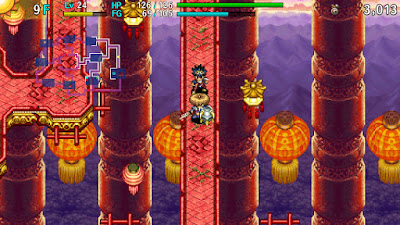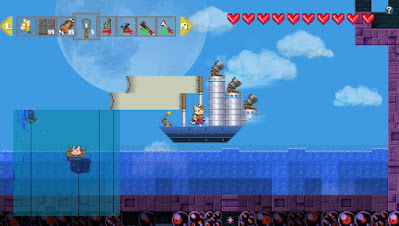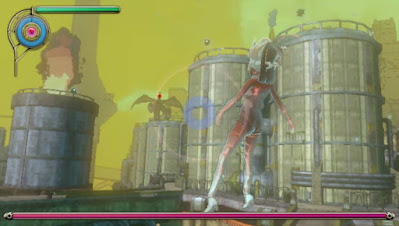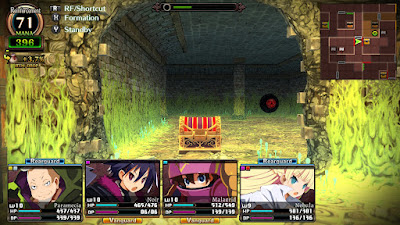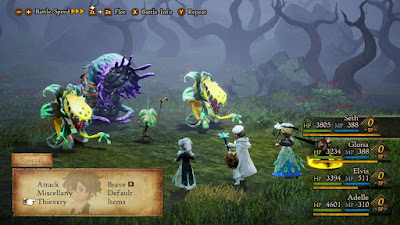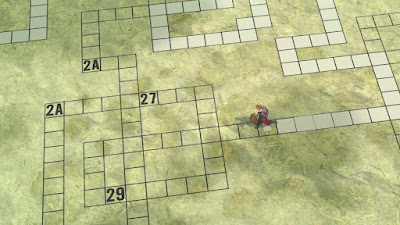I somehow managed to finish 21 games this year. I say "somehow" here because for all of 2021 it felt like I played fewer games than I did in 2020.
Actually, it's possible I did play fewer games in 2021 than I played in 2020. And I surely spent less time with the games I played in 2021 than I did with the games I played in 2020, as my next post will make clear.
As for this post, it features—as the header above hopefully suggests—one-sentence "reviews" of each of the 21 games I completed this year.
Also, they're organized according to when I completed them. So, Shiren the Wanderer 5+ was the first game I "beat" in 2021, while Umrangi Generation Special Edition was the last.
Shiren the Wanderer 5+ (Switch)
I didn’t realize just how much I’ve always wanted to pillage towers at extreme threat of violence and even death until I dug my teeth into this beautifully complex roguelike.
Captain Toad (Switch)
Captain Toad is a cute and (mostly) chill puzzle-action game that I can honestly say I enjoyed more than I've enjoyed any of the proper Mario titles that have been released over the last few years.
Princess Debut (DS)
A fluffy and rather childish otome game that features a barebones rhythm component—via simple ballroom dance sequences—and attractive, manga-inspired art.
A Kappa’s Trail (DS)
An instant-classic, hidden-gem, touch-controlled, puzzle-action game from some of the same devs who gave the world Mother 3, Magical Starsign, and Fantasy Life.
Pikmin 3 Deluxe (Switch)
Exploring the game’s beautifully realized environments while capturing towering "enemies" and corralling similarly giant pieces of fruit is great fun; doing all of those things while watching a clock tick toward zero is not.
Bravely Default II (Switch)
Yes, it’s yet another RPG about those damned “four heroes of light,” but this one tweaks the formula, gameplay (the battles, especially), and aesthetics just enough to make it all seem fresh and exhilarating.
Gnosia (Switch)
I started this game expecting it to be little more than Raging Loop set in space, but what I got was an addictive Werewolf simulator with a thrilling drip-feed story—the opposite of RL’s, basically—and a swoon-worthy OST.
Poison Control (Switch)
Poison Control is a curious and snappy mashup of a dungeon-crawler, a third-person shooter, and Taito's classic quartermucher Qix, all set to a surprisingly dark assortment of stories and a subtly brilliant soundtrack.
Labyrinth of Refrain: Coven of Dusk (Switch)
Come to this dungeon RPG for the 40-member parties (kind of, but kind of not), stay for the in-the-end-touching story and the interesting traversal elements.
Famicom Detective Club: The Missing Heir (Switch)
An attractive and captivating whodunit that occasionally frustrates due in large part to a clunky interface that sticks a little too close to its late-1980s roots.
Famicom Detective Club: The Girl Who Stands Behind (Switch)
Another modern remake of an old adventure game that originally graced the Famicom Disk System, though this one is more suspenseful and has a slightly more appealing setting and story.
Ripened Tingle’s Balloon Trip of Love (DS)
A point-and-click game starring everyone's favorite emotionally stunted oddball, Tingle, and sporting a story that's a silly riff on The Wizard of Oz; believe me, it's every bit as great as it sounds.
Gravity Rush (Vita)
Although its increasingly nonsensical story and always-aggravating combat regularly attempted to take my attention away from it, I don't think I've ever felt more like I'd stepped into the shoes—or spandex jumpsuit—of a superhero than I did while playing this gorgeous "gravity action" game.
Tearaway (Vita)
Tearaway is a breezy, Kirby-esque platformer that makes impressive and creative use of the Vita hardware and, as such, feels more like an amusement-park ride than a video game.
Airship Q (Vita)
Take Terraria, make the protagonist a cat, add a save-your-catnapped-sister story, and toss in a few honest-to-goodness, pull-your-hair-out-by-the-roots moments of jank-prompted frustration, and you have Airship Q.
Deltarune Chapter 1&2 (Switch)
This Undertale follow-up may or may not be a better game than its predecessor, but either way, it's a joy to play thanks to its wall-to-wall witty and silly text and its decision to fully lean into bullet-hell gameplay.
Mon Amour (Switch)
If you've ever wondered what Flappy Bird would look, sound, and play like if the creative geniuses at Onion Games (Black Bird, Dandy Dungeon) had made it, here's your answer.
Dungeon Encounters (Switch)
It's best to ignore how Dungeon Encounters looks, especially before you actually play it; instead, think of it as a minimalistic, top-down Etrian Odyssey that has you solve riddles to find new abilities, party members, treasures—even the final boss.
SaGa Frontier Remastered (Switch)
Although the stories that hold SaGa Frontier together are on the simple side, every other element of this Japanese role-player is out of this world: the eye-popping array of party members, the exotic enemy designs, the extraterrestrial locales, the electrifying battles, and—last, but certainly not least—the extraordinary soundtrack.
Liquid Kids (Switch)
This side-scrolling Bubble Bobble—basically, though the protagonist is a roly-poly platypus rather than lime-green dinosaur—is an arcade game through and through, with cheap deaths around every other corner, but it's also a blast to play thanks to how fun it is to throw "water bombs" everywhere and at everything.
Umurangi Generation Special Edition (Switch)
If Gnosia is a Werewolf simulator, Umurangi Generation is a document-the-end-of-the-world-using-a-DSLR-camera simulator—and a damn good one, at that.

